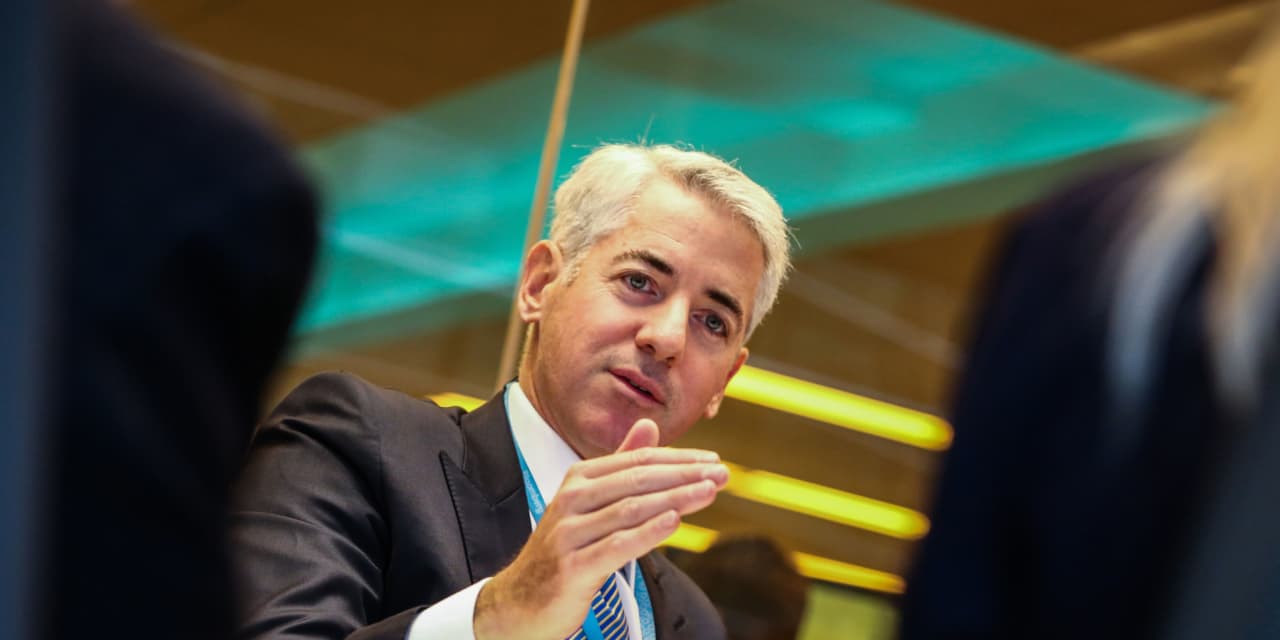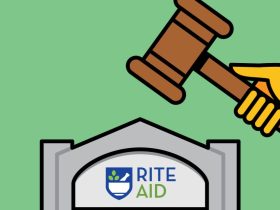Move over, Jeff Gundlach and Bill Gross. Wall Street has another bond king and it’s Bill Ackman.
Ackman, the billionaire head of Pershing Square Capital Management, helped ignite a sharp rally in U.S. Treasuries Monday when he tweeted around 10 a.m. Eastern Time that his firm had covered its bond short.
This is the third bond score for Ackman in recent years. He was bearish on corporate bonds before Covid-19 and scored when the corporate market cratered with the onset of the pandemic. And he was correctly bearish on bonds in 2022, when rising rates walloped bonds.
He’s an unlikely bond maven since he focuses mainly on the equity market. His firm runs about $16 billion and his main vehicle is
Pershing Square Holdings,
an $11 billion European listed closed-end fund traded in the U.S. under the ticker PSHZF. Ackman runs a concentrated equity portfolio that includes
Alphabet
(ticker: GOOG),
Chipotle Mexican Grill
(CMG), and
Lowe’s
(LOW).
But he periodically plays the bond market when he senses opportunity and uses options (including complex derivatives like swaptions), which can offer big returns for a limited cash outlay.
Ackman wrote in his semiannual report in August 2022 to holders of Pershing Square Holdings that its rate hedging had generated about $5 billion in profits over the prior three years on an outlay of less than $500 million..
Earlier Monday, Ackman tweeted on X, the platform formerly known as Twitter, “There is too much risk in the world to remain short bonds at current long-term rates.” Earlier Monday, he had tweeted,“The economy is slowing faster than recent data suggest.”
The 30-year Treasury has rallied about two points, or 2%,, in price since the Ackman tweet Monday morning, falling to 4.98% in yield from 5.15%. This is a big move for the bond market, equivalent to a 600-point change in the
Dow Jones Industrial Average.
The covering of the Ackman short ends what likely was a profitable trade for the outspoken investment manager, who had tweeted in early August that he was short long-term Treasuries. At the time, the 30-year Treasury yielded about 4.20%,
Ackman’s bearish view in August was based on a high federal deficit, an expensive energy transition, wage pressure, and other factors.
“The long-term inflation rate plus the real rate of interest plus term premium suggests that 5.5% is an appropriate yield for 30-year Treasurys,” he tweeted in August.
Ackman pulled out of the trade shy of 5.5% but within a half percentage point of that level, and the move came very quickly, something he predicted.
Bill Gross, 79, was the longtime bond king, having co-founded Pimco, one of the country’s biggest fixed-income managers, in 1971. Gross stepped aside in 2014 and joined Janus Henderson, where he ran a bond fund. He retired in 2019 and now focuses on running his own money.
Gross, who also likes to use X, tweeted earlier Monday that he sees weakness developing in the economy and that he is positioned to benefit from lower short rates.
“Regional bank carnage and recent rise in auto delinquencies to long-term historical highs indicate U.S. economy slowing significantly. Recession in 4th quarter,” he tweeted. He tweeted that “higher for longer,” the idea that short rates will remain high for an extended period, is “yesterday’s mantra.”
The first read on third quarter U.S. economic growth is due for release Thursday and analysts see real growth of better than 3% annualized in the period.
The more recent bond king has been Jeff Gundlach, the high-profile head of DoubleLine, a California investment firm focused on mortgage securities. His flagship fund is DoubleLine Total Return Bond (DLTNX), which totals more than $30 billion. Barron’s anointed him the “new Bond King” in 2011.
With Ackman’s latest coup, investors will be alert to his next bond move.
Write to Andrew Bary at andrew.bary@barrons.com
Read the full article here













Leave a Reply